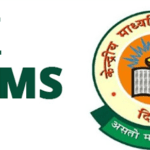Government jobs in India refer to employment opportunities in various government departments, ministries, public sector undertakings, and organizations at the central, state, and local levels. These jobs are typically secured through competitive examinations and selection processes conducted by government bodies such as the Union Public Service Commission (UPSC), Staff Selection Commission (SSC), and state-level public service commissions.
Government jobs in India span a wide range of sectors and fields, including:
Civil Services: The civil services are highly prestigious and competitive jobs at the central and state levels. These include the Indian Administrative Service (IAS), Indian Police Service (IPS), Indian Foreign Service (IFS), and other administrative, police, and diplomatic services.
- Banking and Finance: Public sector banks like State Bank of India (SBI), Reserve Bank of India (RBI), and other financial institutions offer positions such as bank clerks, probationary officers, specialist officers, and administrative roles.
- Public Sector Undertakings (PSUs): PSUs are government-owned companies operating in various industries such as oil and gas, power, telecommunications, and engineering. Examples include Oil and Natural Gas Corporation (ONGC), Bharat Heavy Electricals Limited (BHEL), and Bharat Petroleum Corporation Limited (BPCL).
- Defense and Paramilitary Forces: Opportunities exist in the Indian Army, Indian Navy, Indian Air Force, Central Armed Police Forces (CAPF), and other defense and paramilitary organizations.
- Education and Research: Government jobs in the education sector include teaching positions in government schools, colleges, and universities, as well as research positions in institutes such as the Indian Institutes of Technology (IITs) and Indian Council of Agricultural Research (ICAR) institutes.
- Healthcare and Public Health: Government hospitals, medical colleges, and health departments offer jobs for doctors, nurses, pharmacists, and other healthcare professionals.
- Railway and Transportation: The Indian Railways is one of the largest employers in the country, providing jobs in various roles such as engineers, technicians, station masters, and ticketing staff.
- State Government Jobs: Each state in India has its own administrative departments, police forces, and public service commissions that conduct recruitment for state-level government jobs.
These are just a few examples of the wide range of government job opportunities available in India. Government jobs often come with benefits such as job security, pensions, healthcare, and other allowances, making them highly desirable for many individuals.
- BRICS

- Buddhism : the prominent religion in the world

- Cracking the Code: Your Ultimate Guide to JEE Success

- ECONOMIC REFORMS SINCE 1991 IN INDIA

- Exploring Hydrogen Power Plants: The Future of Clean Energy

People choose government sector jobs over private sector jobs for several reasons:
- Job Security: Government jobs are known for their high level of job security. Once employed in a government sector, individuals have a lower risk of losing their jobs compared to the private sector, where layoffs and downsizing are more common. This stability is particularly appealing in a country with a competitive job market and a large population seeking employment.
- Stability and Benefits: Government jobs often come with stable working hours, regular holidays, and defined leave policies. They also provide various benefits such as pensions, medical allowances, housing facilities, and insurance coverage. These benefits contribute to a better work-life balance and financial security, which are significant factors for many individuals.
- Prestige and Social Status: Government jobs are often associated with prestige and social status in society. Many government positions are considered prestigious, and individuals holding these positions are often respected and admired by their communities. The social recognition and respect associated with government jobs make them appealing to many individuals.
- Fixed Pay Structure: Government jobs generally offer a fixed pay structure with regular salary increments based on time in service and promotions. While private sector jobs may offer higher initial salaries, government jobs often provide a more predictable and transparent salary progression over the course of one’s career.
- Retirement Benefits: Government jobs provide pension plans, ensuring a stable income during retirement. This retirement security is highly valued, particularly in a country with limited social security programs. The prospect of a financially secure retirement is a significant factor that attracts individuals to government jobs.
- Work-Life Balance: Government jobs often offer better work-life balance compared to certain private sector jobs. Government employees typically have fixed working hours, weekends off, and limited overtime requirements. This stability allows individuals to allocate time for personal pursuits, hobbies, and family commitments.
- Opportunities for Growth and Promotion: Government jobs often provide opportunities for career growth and promotion through internal exams, seniority-based systems, and specialized training programs. This appeals to individuals who seek long-term stability and the potential for advancement in their careers.
- Public Service Motivation: Many individuals are motivated to work in the government sector due to a desire to serve the public and make a positive impact on society. Government jobs often involve working for the welfare of the country and its citizens, which aligns with the aspirations of individuals seeking meaningful and purposeful work.
It’s important to note that these factors may vary in significance depending on individual preferences, personal circumstances, and career goals. While government sector jobs offer certain advantages, private sector jobs also have their own benefits such as higher salary potential, faster career growth in some industries, and a dynamic work environment. The choice between government and private sector jobs ultimately depends on individual priorities and career aspirations.






